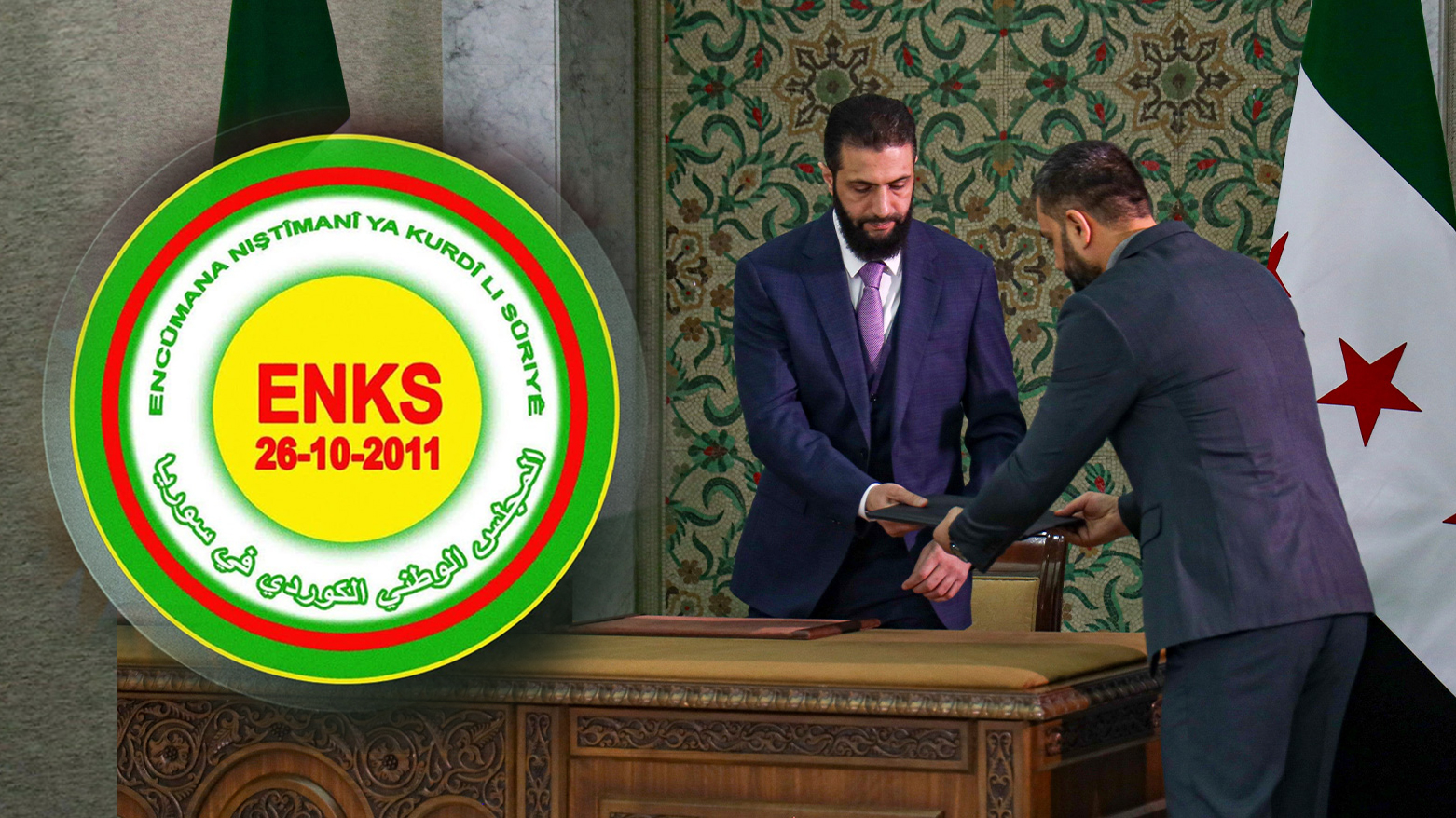KNCS Condemns Syria’s Constitutional Declaration
The KNC further denounced the declaration’s failure to acknowledge Syria’s pluralistic nature as a multi-ethnic and multi-religious state.

ERBIL (Kurdistan24) – The Kurdish National Council in Syria (KNCS) has expressed strong disapproval of the constitutional declaration issued in Damascus on Thursday, describing it as a document that falls drastically short of the aspirations for a democratic Syria.
Read More: Syrian leader signs constitution that puts the country under an Islamist group's rule for 5 years
According to the KNCS, the declaration was drafted by a committee that failed to represent the full spectrum of Syria’s political, national, and religious communities, resulting in an exclusionary framework that lacks legitimacy and national consensus.
In a statement issued by the KNCS, the Council expressed its surprise and disappointment at the declaration, stating that it was "deeply disappointing and far from the aspirations of building a democratic state that reflects Syria’s true diversity."
The KNCS further criticized the lack of inclusivity in the drafting process, emphasizing that it was created by a body that "does not represent the various political, national, and religious components of Syria, stripping it of inclusiveness and national consensus while reinforcing exclusion and monopolization of power."
The KNCS statement emphasized that the new constitutional declaration disregards Syria’s rich pluralistic identity as a multi-ethnic and multi-religious state. Instead of guaranteeing the rights of all national and religious components, the document enshrines a single national identity in the state's official designation—an act that the KNCS deems a deliberate exclusion of diverse communities.
"The declaration ignored Syria’s pluralistic nature and its identity as a multi-ethnic and multi-religious state. It failed to guarantee national and religious rights for its diverse components, instead enshrining a single national identity in the state's official designation—a clear act of exclusion," the KNCS stated.
Moreover, as highlighted in the statement, the declaration violates the principle of state neutrality in religious affairs by continuing the requirement that the president must belong to a specific religion. "It violated the principle of state neutrality toward religion by maintaining the requirement that the president must belong to a specific religion, contradicting the fundamental principles of equal citizenship that should form the basis of any democratic system," the KNCS noted.
Concerns over authoritarian tendencies are further underscored in the KNCS statement, which warns that the declaration reinforces a centralized system of governance. By granting sweeping powers to the president without clear mechanisms to ensure the separation of powers, the document raises fears of perpetuating authoritarian rule in a different guise.
The KNCS views this as a critical setback in the quest for a democratic Syria, as it effectively concentrates power rather than distributing it equitably across governing institutions. "The declaration reinforces a centralized system of governance, granting extensive powers to the president without clear guarantees for the separation of powers or institutional balance. This raises serious concerns about the reproduction of authoritarianism in new forms," the statement asserted.
According to the KNCS, the constitutional declaration also imposes additional restrictions on civil and individual freedoms. One particularly troubling aspect is the limitation placed on women's roles, reducing their function to the preservation of traditional societal positions rather than promoting gender equality and empowerment.
"Additionally, it imposes further restrictions on civil and individual liberties, limiting the role of women to preserving their social position and traditional roles, effectively extending a pattern of authoritarianism and societal repression," the KNCS warned.
Further complicating Syria’s political landscape, the KNCS asserts that the declaration’s proposed five-year transitional period lacks sufficient guarantees for fair participation. Rather than serving as a pathway toward meaningful political transformation, the KNCS warns that this timeframe appears to be a mechanism to entrench the existing power structure, ultimately deepening the crisis instead of resolving it.
"Setting the transitional period at five years without guarantees of fair participation turns it into a mechanism for entrenching the current reality rather than paving the way for genuine political transformation, thereby deepening the crisis instead of resolving it," the statement read.
In its statement, the KNCS called upon all national, democratic, and ethnic forces to take a principled stance against the declaration and advocate for its reconsideration. "This necessitates a responsible stance from all national, democratic, and ethnic forces to push for a reconsideration of the declaration in a way that ensures political and ethnic pluralism," the Council stated.
Reaffirming its commitment to the Kurdish cause, the KNCS emphasized its pursuit of a just and democratic resolution to Kurdish rights within the framework of a decentralized Syria.
"The Council reaffirms its commitment to the struggle for a just and democratic resolution of the Kurdish issue, recognizing it as the cause of an indigenous people, within the framework of a decentralized Syria that guarantees the rights of all its citizens and ensures justice and equality for all," the statement concluded.
As the constitutional debate continues, the KNCS remains firm in its stance, advocating for an inclusive and democratic Syria that upholds the principles of equal representation and the protection of all communities.